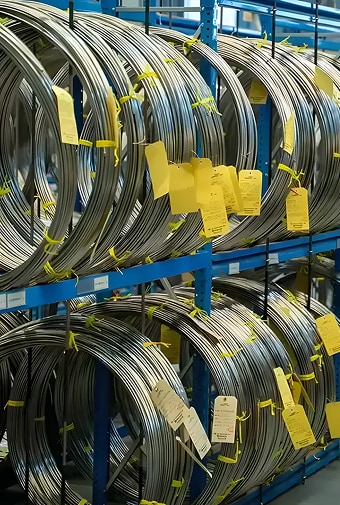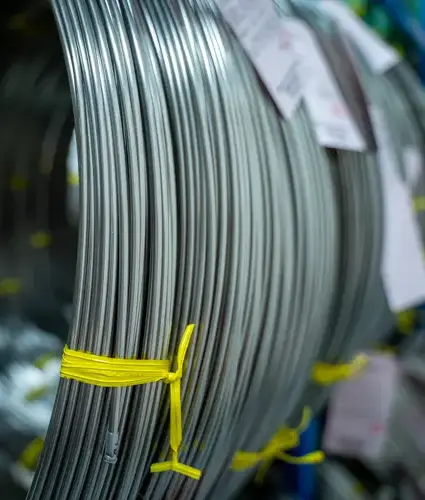For RTD sensor manufacturing
Mineral insulated RTD cable
We have an extensive stock (over 200KM) of Okazaki AerOpak® mineral insulated RTD-cable in our warehouse. The Copper, Copper-Nickel, Nickel, Nickel-Chromium or Constantan alloys in the MI cable provide a stable transmission of the signal and the two different designs (wide-spaced and regular spaced) guarantee efficient mounting for either method. Our mineral insulated RTD cables are typically sheathed with material varying from Inconel to different types of stainless steel.
Product summary
- Excellent mechanical strength
- Flexibility and longevity
- Low electromagnetic interference
- Corrosion resistant sheath material
- High quality MI RTD cable of Japanese origin
Unmatched performance and reliability
World renown quality of Okazaki mineral insulated cable
Kamet’s RTD cables are produced by our long-standing partner Okazaki manufacturing company and ARi industries. Okazaki manufacturing company is the largest mineral insulated cable manufacturer. Operating out of six factory locations, Okazaki boasts a substantial production capacity, establishing itself as a dominant force in the industrial temperature sensor sector with a significant market share.
Their mentality to achieve excellence, means our mineral insulated cables are ensured of the highest quality, and can be offered at competitive prices.
In contrast, ARi Industries specializes in niche areas of MI cables, particularly those incorporating refractory metals. They also offer custom heating solutions utilizing MI cables and manufacture exotic thermocouples.

Overview of mineral insulated RTD cable
Why choose Kamet's RTD MI cable?
- Quality and reliability: our products are known for their high quality, ensuring precise temperature measurement and long-lasting durability.
- Technical expertise: together with the manufacturer we provide solutions tailored to your specific needs.
- Customization: we offer customization options to meet your requirements for specific lengths, diameters, and materials.
- One stop shop: We provide a wide range of cables suited for various temperature ranges and industrial applications, as well as all the other products needed to manufacture industrial temperature sensors, such as thin films, ceramic wire wounds and transmitters, many of which we have in stock!
- Customer service and support: our team speaks Dutch, English, German, French, Greek, Spanish and Turkish. Making it easy to communicate and answering all the question you might have. Furthermore we offer an online portal to provide 24/7 access to our stock and prices.
- Industry experience: with our successful track record, you can trust us as a dependable partner.
- Full transparency: we are fully transparent about the origin of our products and certificates are always provided.


Download the MI RTD cable brochure
Consult our mineral insulated thermocouple cable brochure for information about our product codes and materials.
"*" indicates required fields
CableStream CS-1100
Cutting an RTD MI cable can be a time-consuming process due to its construction. To efficiently cut MI cable coils into smaller pieces, we offer the CableStream CS-1100. This machine not only cuts but also straightens the coils, streamlining your production process. Explore how the CS-1100 can enhance your manufacturing process on our product page.










